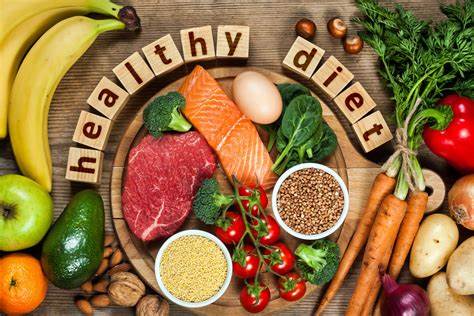Healthy, radiant skin is often seen as a reflection of overall health, and what we eat plays a crucial role in maintaining skin vitality. In Australia, where sun exposure and environmental factors can impact skin health, understanding the connection between diet and skin conditions is essential. This blog explores how specific nutrients can influence skin health and offers tips for achieving a glowing complexion through diet.
The Connection Between Diet and Skin Health
The skin is the body’s largest organ and serves as a barrier against environmental stressors. A well-balanced diet rich in essential nutrients can support skin structure and function, while poor dietary choices can exacerbate skin conditions such as acne, eczema, and psoriasis (Boeing et al., 2012). Here are some key nutrients that can significantly impact skin health.
Key Nutrients for Healthy Skin
- Antioxidants: Antioxidants, such as vitamins C and E, help protect the skin from oxidative stress caused by UV exposure and pollution. Vitamin C is essential for collagen production, which keeps skin firm and youthful. Foods high in antioxidants include:
- Berries (blueberries, strawberries)
- Citrus fruits (oranges, lemons)
- Nuts and seeds (almonds, sunflower seeds)
- Dark leafy greens (spinach, kale) (Pinnell, 2003).
- Berries (blueberries, strawberries)
- Healthy Fats: Omega-3 fatty acids play a critical role in maintaining skin barrier function and hydration. They help reduce inflammation and can alleviate conditions like eczema and psoriasis. Sources of healthy fats include:
- Fatty fish (salmon, mackerel)
- Flaxseeds and chia seeds
- Walnuts and avocados (Boeing et al., 2012).
- Fatty fish (salmon, mackerel)
- Vitamin A: This vitamin is essential for skin repair and maintenance. It helps prevent dryness and promotes a healthy skin cell turnover. Foods rich in vitamin A include:
- Carrots
- Sweet potatoes
- Dark leafy greens
- Eggs (D’Ambrosio et al., 2010).
- Carrots
- Zinc: Zinc is vital for skin health, playing a role in wound healing and reducing inflammation. A deficiency can lead to acne and other skin issues. Good sources of zinc include:
- Meat and poultry
- Seafood (especially oysters)
- Legumes (beans, lentils)
- Nuts and seeds (Prasad, 2008).
- Meat and poultry
- Hydration: Staying well-hydrated is essential for maintaining skin elasticity and moisture. Dehydration can lead to dry, flaky skin. Aim to drink plenty of water and consume hydrating foods such as:
- Fruits (watermelon, cucumbers)
- Vegetables (celery, tomatoes)
- Fruits (watermelon, cucumbers)
Foods to Incorporate for Healthy Skin
- Berries: Packed with antioxidants that help fight free radicals and protect skin cells.
- Fatty Fish: Rich in omega-3s, promoting a moisturized and supple complexion.
- Nuts and Seeds: Great sources of vitamin E and healthy fats, supporting skin repair.
- Leafy Greens: High in vitamins and minerals that nourish the skin from within.
- Sweet Potatoes: Loaded with beta-carotene, which can improve skin tone and reduce sun damage.
Tips for Promoting Skin Health Through Diet
- Eat a Balanced Diet: Focus on a variety of whole foods that provide essential nutrients. Include fruits, vegetables, whole grains, lean proteins, and healthy fats in your meals.
- Limit Processed Foods: Reduce your intake of sugar, refined carbohydrates, and unhealthy fats, which can contribute to inflammation and exacerbate skin conditions.
- Practice Portion Control: Maintaining a healthy weight can also positively impact skin health, as obesity is linked to conditions like acne and skin infections.
- Stay Hydrated: Aim for at least 2 liters of water per day, adjusting based on activity levels and climate. Herbal teas and water-rich fruits and vegetables also contribute to hydration.
- Consult Professionals: If you have specific skin concerns, consider consulting with a dermatologist or a registered dietitian for personalized advice.
Local Resources for Skin Health
For Australians looking to enhance their skin health through diet, several resources are available:
- Nutrition Australia: Provides guidelines and resources on healthy eating patterns.
- Australian Dietary Guidelines: Offers comprehensive dietary recommendations for overall health.
- Dietitians Association of Australia: Consulting with a registered dietitian can offer tailored dietary advice for skin health.
Conclusion
A nutrient-rich diet is essential for maintaining healthy skin and preventing various skin conditions. By incorporating foods high in antioxidants, healthy fats, vitamins, and minerals, Australians can support their skin’s structure and function. Small dietary changes can lead to significant improvements in skin health, helping you achieve a vibrant and glowing complexion.






